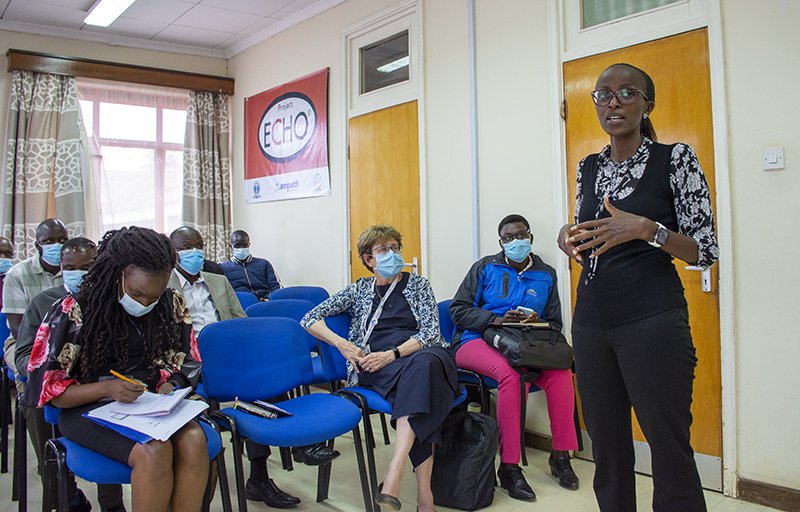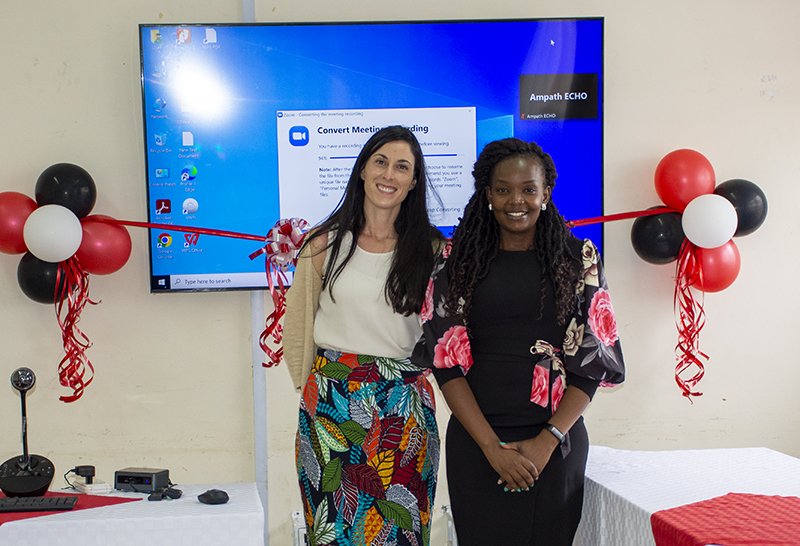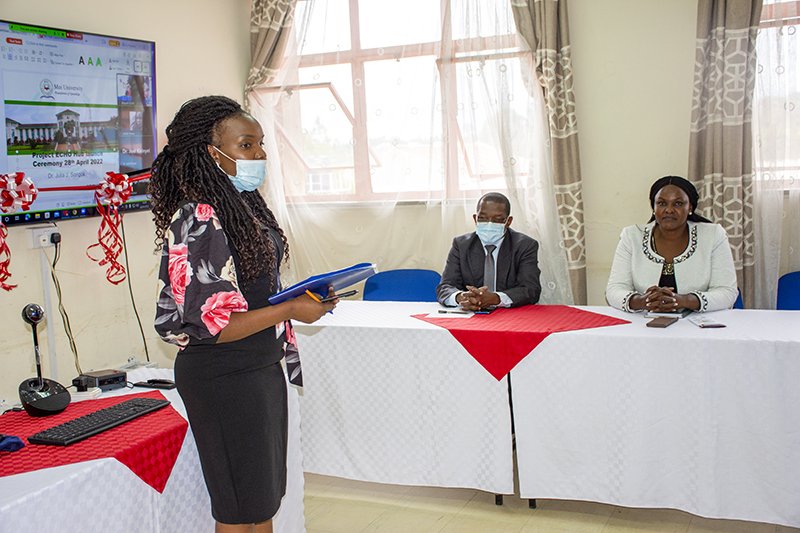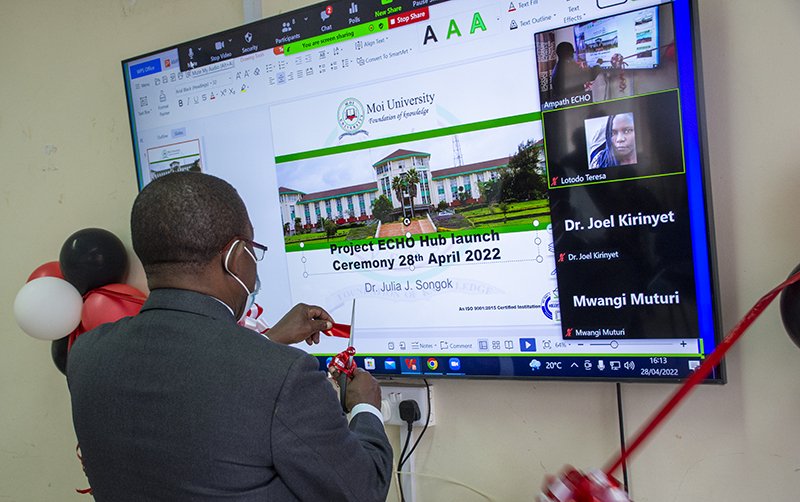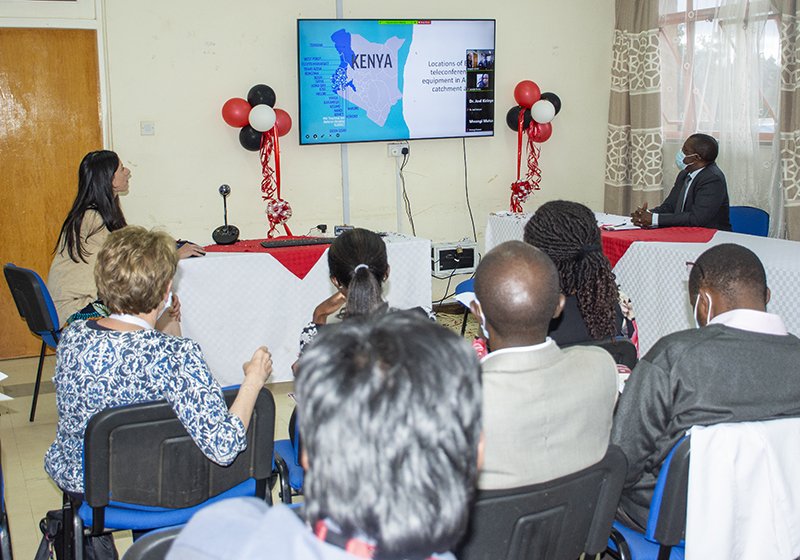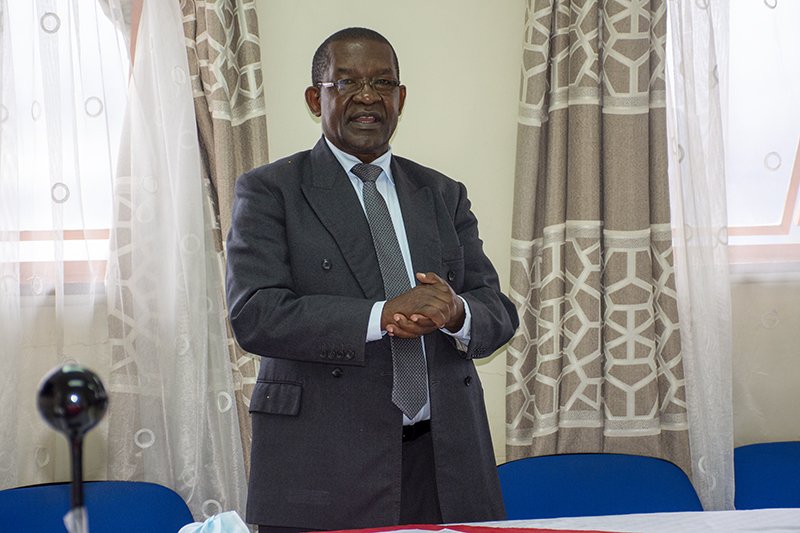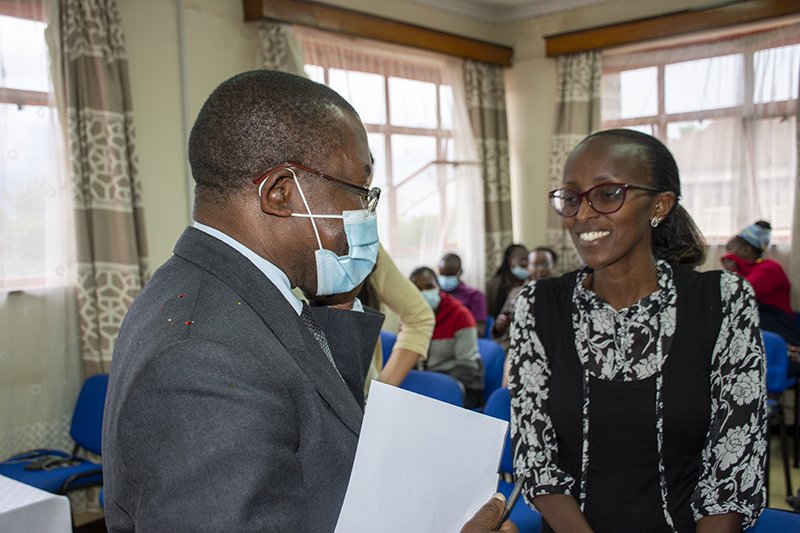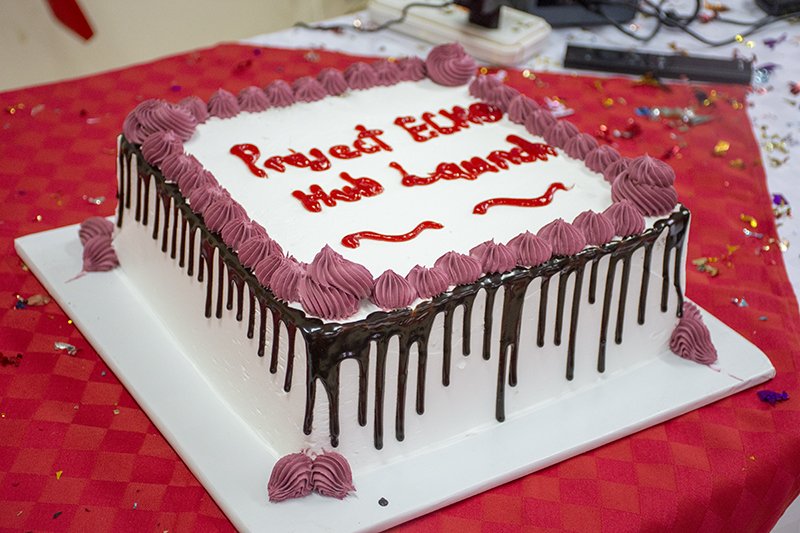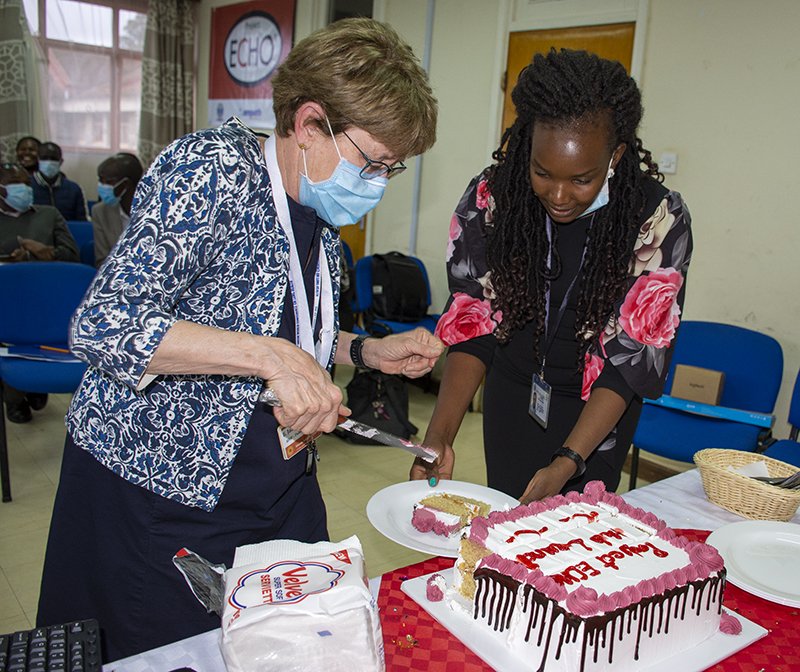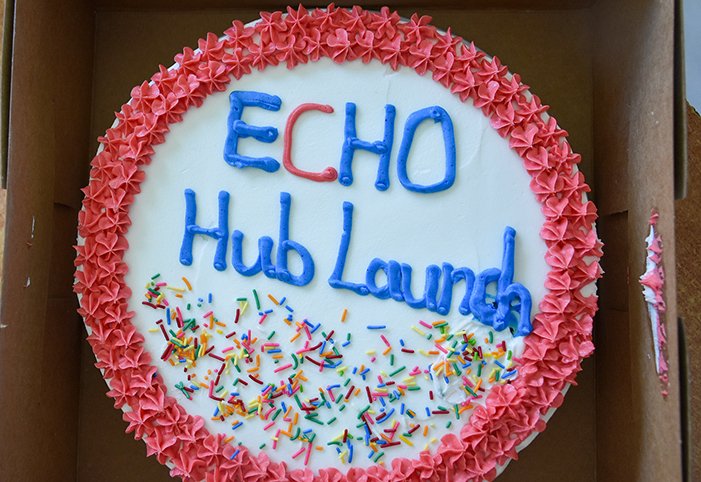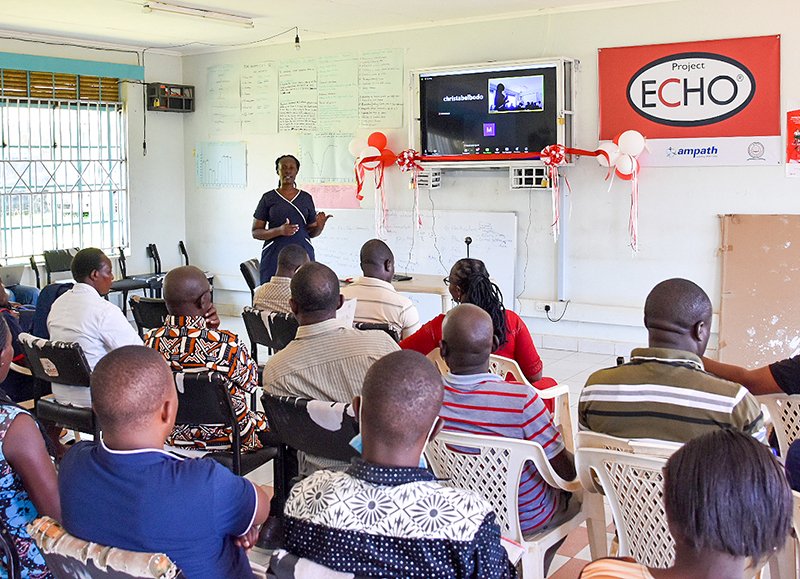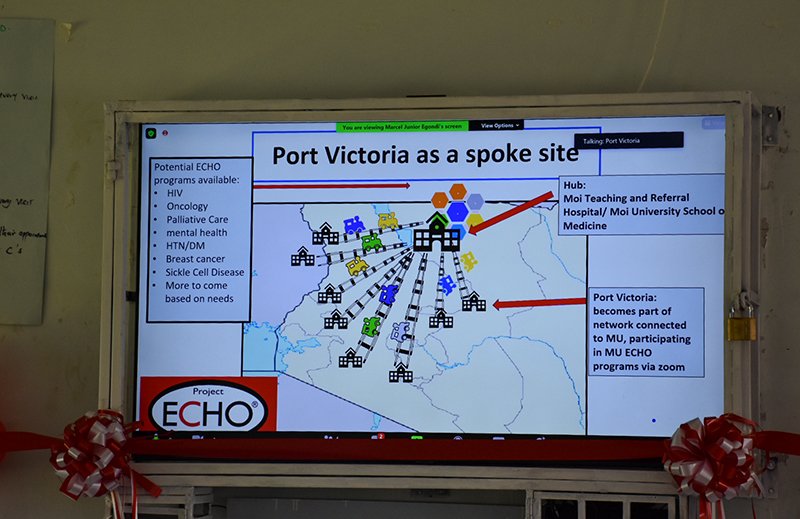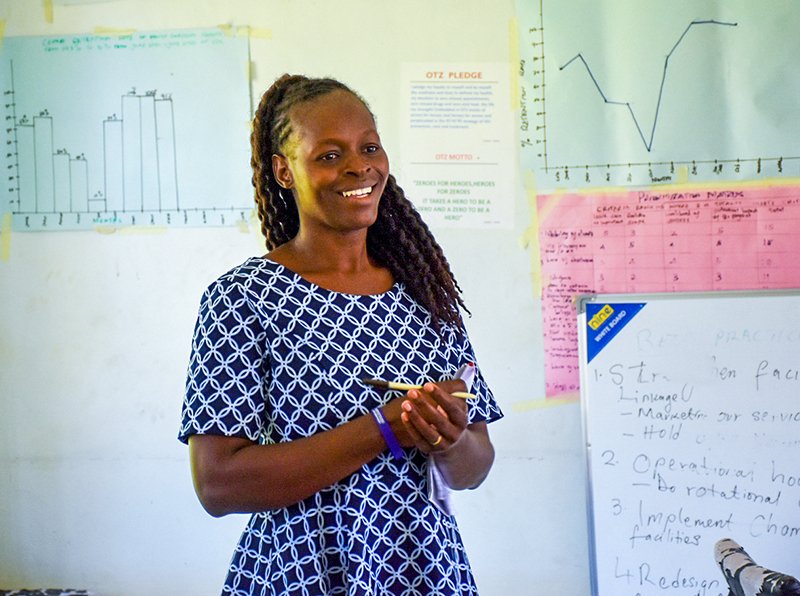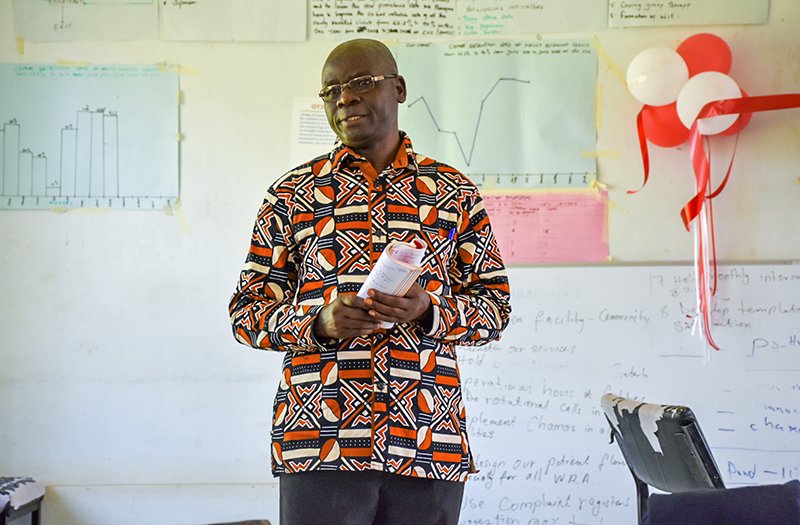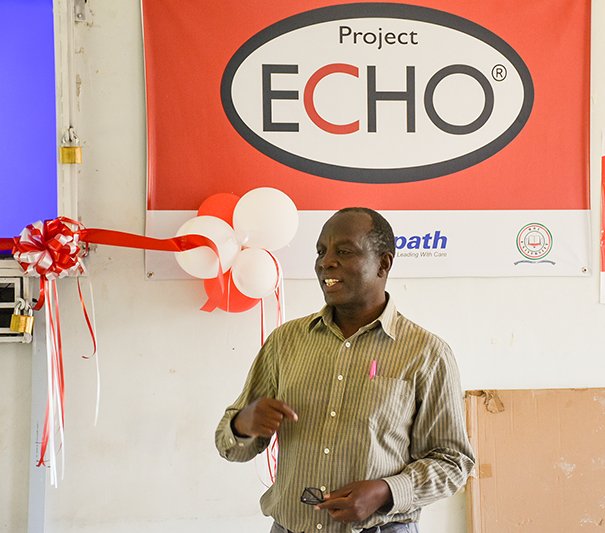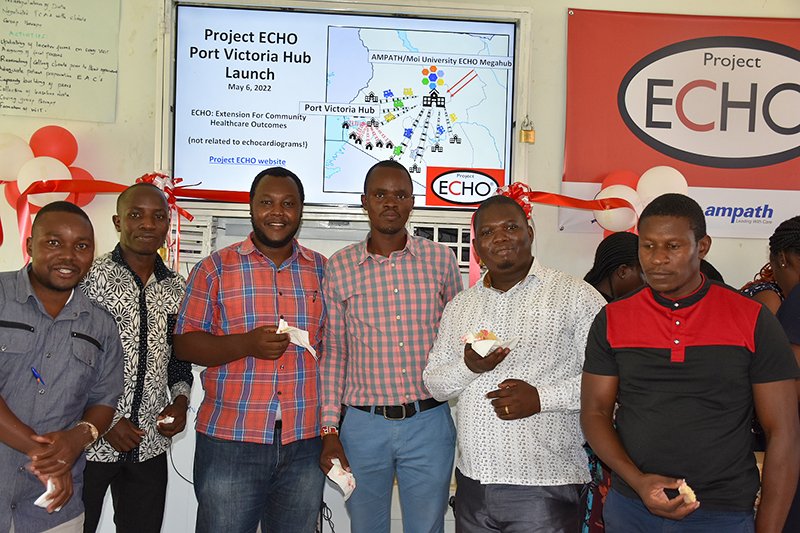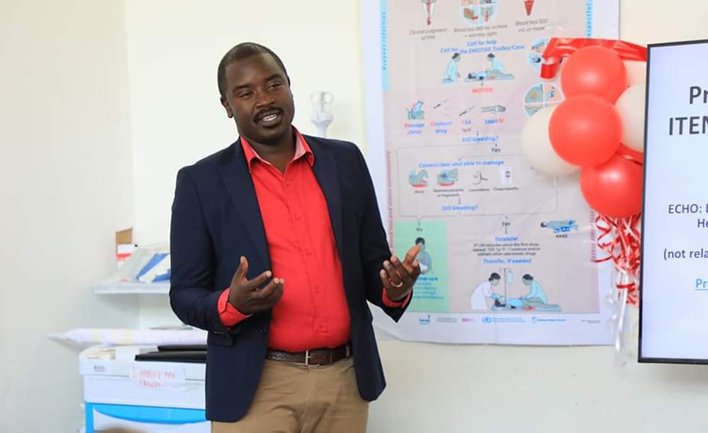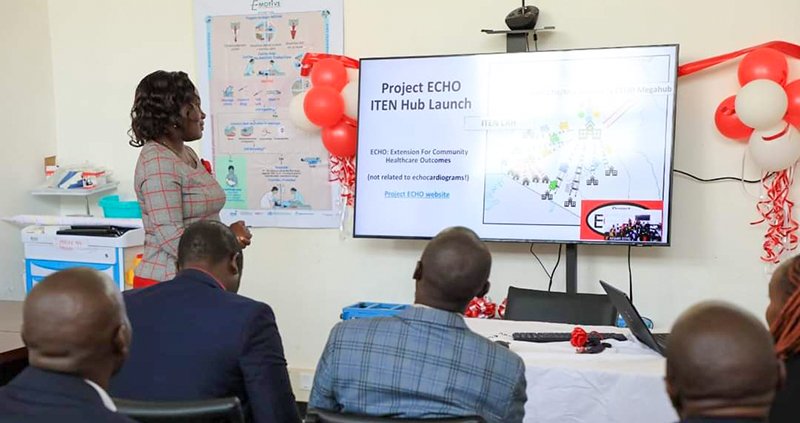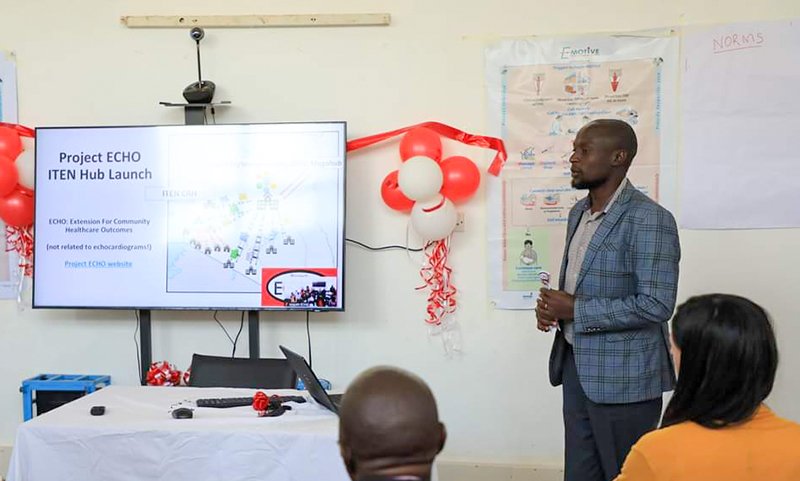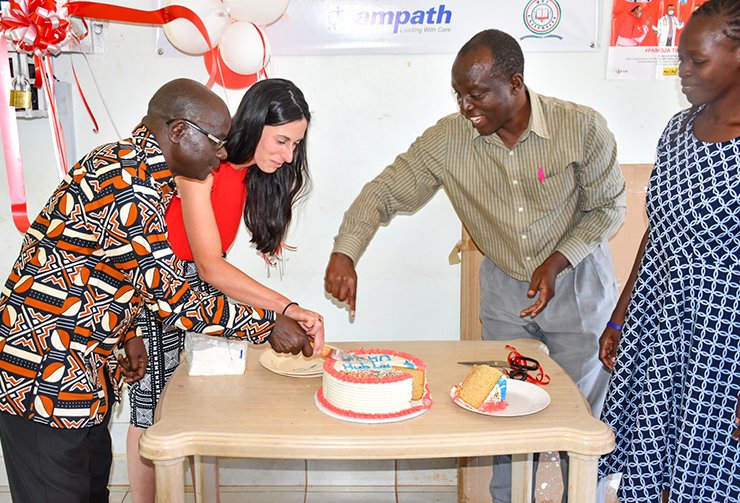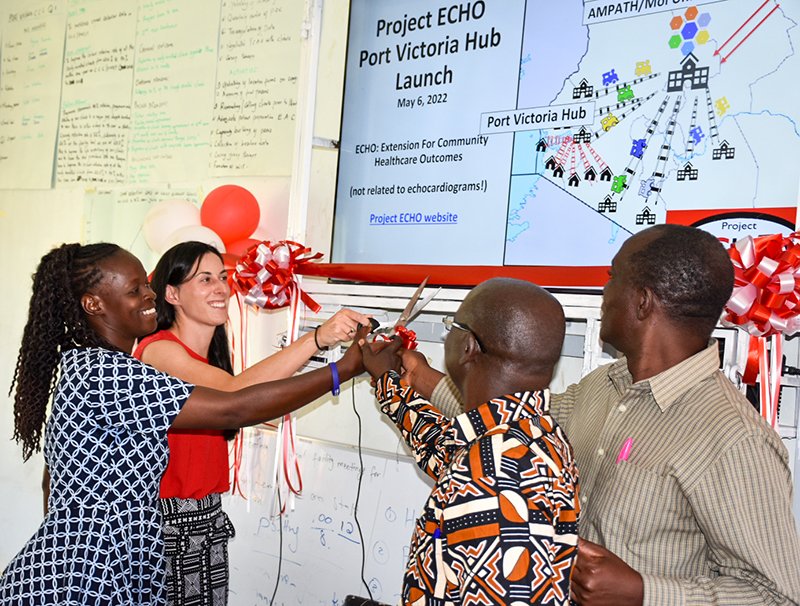Project ECHO Education Network Expands to Improve Care and Referrals
Celebrations accompanied the opening of new Project ECHO digital learning facilities at Moi University, Port Victoria Sub-County Hospital and Iten County Referral Hospital that will improve knowledge sharing and capacity of health care workers across western Kenya. A grant from Project ECHO and funds from USAID enabled the ongoing expansion of the AMPATH Project ECHO network.
Project ECHO is a tele-education and mentoring platform that utilizes Zoom to bring education about healthcare topics directly to healthcare workers in widely distributed geographic locations. Project ECHO uses a hub and spoke model with experts and consultants at academic centers or referral hospitals serving as the “hub site” and providing teaching and mentorship on patient cases to healthcare workers at “spoke sites” in remote areas or lower-level health facilities.
The ECHO sessions occur once or twice per month for approximately one hour and follow a curriculum to improve competency in a specific clinical area. Multidisciplinary experts at the “hub” site provide a lecture for 15-20 minutes followed by healthcare workers at the spoke sites presenting a related difficult patient case to discuss with advice and teaching points shared for all.
“The premise of the Project ECHO model is that ‘all teach and all learn,’” said Caitrin Kelly, MD, MPH, principal investigator for the AMPATH ECHO project. “The continuing medical education topics and case discussions build knowledge and skills over time. Ultimately, the goal is to improve patient outcomes and improve referrals to MTRH,” she continued.
AMPATH partners have been successfully utilizing the ECHO platform for capacity building in HIV, chronic disease advanced practice clinical officers training, pediatric oncology, palliative care and multiple myeloma. Recently added programs include diabetes and hypertension, mental health and quality improvement. Additional programs in sickle cell disease, hemophilia and breast health are being launched soon.
In addition to the new ECHO hub sites, existing teleconferencing equipment at select AMPATH clinics and Kenya Ministry of Health facilities are part of the AMPATH Project ECHO network. Additional Ministry of Health teleconferencing facilities are also in development with support from a grant from Project ECHO to Kenyatta National Hospital and the CDC. Healthcare workers in remote or rural areas who are not located at a hub site can participate in the ECHO sessions by joining zoom from cell phones, tablets or computers.
“The grant from Project ECHO enables us to add a total of nine teleconferencing facilities and support a program manager who is essential to continuing to mentor and support our hub sites and new programs,” said Charity Wambui, MMED, Moi University co-principal investigator for the project. The new hub sites include the Dean’s Board Room and Principal’s Committee Room at Moi University, Port Victoria Sub-County Hospital, Bungoma County Referral Hospital and Iten County Referral Hospital. Four additional hub sites will be added in the near future. “Ultimately, we hope to expand the educational opportunities by mentoring select Level 4 and 5 health facilities to become independent hubs to support level 2 and 3 facilities in specific areas of interest in their counties,” Dr. Wambui added.
“Sharing the ECHO operational support has several advantages including improved communication, sharing best practices, recruiting new spoke sites and enhancing feedback, monitoring and evaluation,” said program manager Betty Lelei, MPH. The AMPATH Project ECHO team is also working with various clinical training programs to establish a system to award continuing medical education points for participants in the Project ECHO programs.
“We developed and piloted a needs assessment survey to determine educational needs at rural health facilities and facilitate coordination of schedules for ECHO sessions across a large area,” said Dr. Kelly. “The ECHO model is an exciting platform to connect regularly with healthcare providers across Western Kenya, and develop educational programs that meet their needs in a cost-effective way. It leverages the clinical expertise we have in Eldoret through Moi University, MTRH, and the AMPATH consortium to improve patient care in many different clinical areas over our entire catchment area,” she concluded.

